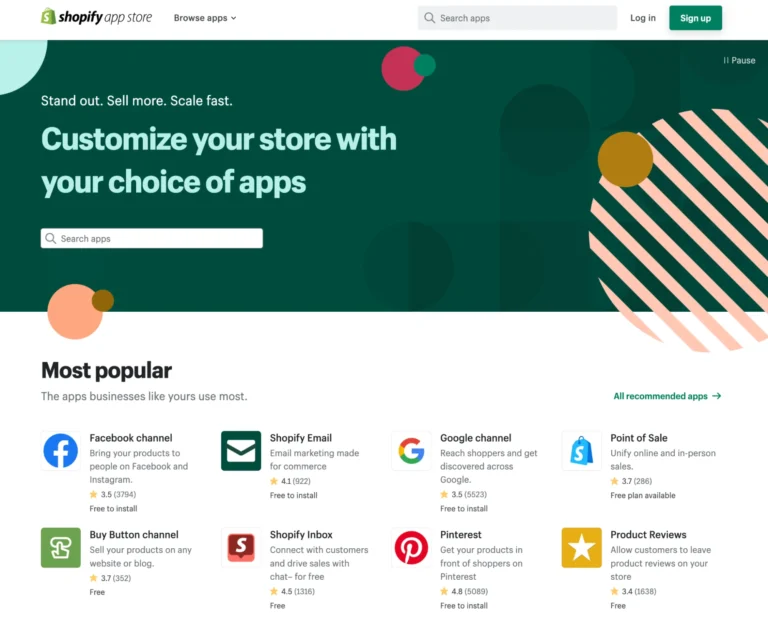In today’s fast-paced digital era, having a robust online presence is paramount for businesses of all sizes and industries. A well-designed website serves as a virtual storefront, offering a gateway to endless opportunities for growth, engagement, and success. In this article, we will delve into the reasons why businesses, regardless of their nature, need websites to thrive in the modern marketplace.
Table of Contents
- Introduction
- Credibility Boost: Your Digital Identity
- 24/7 Accessibility: A Silent Salesperson
- Global Reach: Breaking Geographical Barriers
- Effective Marketing Platform: Showcasing Your Value
- Enhanced Customer Service: Building Trust
- Data Collection and Analysis: Informed Decision Making
- E-Commerce Integration: Expanding Revenue Streams
- Competitive Edge: Staying Ahead of the Curve
- Search Engine Visibility: Being Found Online
- Mobile Compatibility: Reaching On-the-Go Users
- Building Brand Identity: Consistency and Recognition
- Educational Resource: Sharing Knowledge
- Direct Communication: Engaging with Customers
- Conclusion
- FAQs
1. Introduction
In an age where consumers turn to the internet for almost every need, having a business website is not just an option but a necessity. Let’s explore the myriad benefits that a website can offer to businesses across various sectors.
2. Credibility Boost: Your Digital Identity
A well-crafted website instills trust and credibility among potential customers. It acts as a digital business card, showcasing your expertise, portfolio, and achievements. A professional website reflects the values and quality of your business.
3. 24/7 Accessibility: A Silent Salesperson
Unlike brick-and-mortar stores with limited operating hours, a website is open 24/7. It acts as a round-the-clock sales representative, allowing customers to explore your offerings, even when your physical location is closed.
4. Global Reach: Breaking Geographical Barriers
The internet knows no boundaries. With a website, your business can transcend geographical limitations and tap into a global audience. This opens up exciting possibilities for expansion and growth.
5. Effective Marketing Platform: Showcasing Your Value
A website serves as a dynamic marketing tool. You can highlight your products, services, and success stories in a visually appealing manner. This platform enables you to convey your unique value proposition effectively.
6. Enhanced Customer Service: Building Trust
Engage with your customers through your website, providing them with valuable information and prompt assistance. A well-designed FAQ section and customer support portal can enhance customer satisfaction and build lasting relationships.
7. Data Collection and Analysis: Informed Decision Making
Websites allow for the collection of valuable user data, providing insights into customer behavior, preferences, and trends. This data equips businesses to make informed decisions and tailor their strategies accordingly.
8. E-Commerce Integration: Expanding Revenue Streams
For businesses looking to sell products or services online, an e-commerce integrated website is essential. This digital storefront enables secure transactions, opening new avenues for generating revenue.
9. Competitive Edge: Staying Ahead of the Curve
In a competitive market, a well-designed website sets you apart from the competition. It showcases innovation, user-friendliness, and adaptability, signaling to customers that you are a forward-thinking business.
10. Search Engine Visibility: Being Found Online
A website optimized for search engines (SEO) increases your chances of being discovered by potential customers. Appearing on the first page of search results can significantly boost your organic traffic.
11. Mobile Compatibility: Reaching On-the-Go Users
With the majority of internet users accessing content on mobile devices, having a responsive website is crucial. Mobile compatibility ensures a seamless experience, regardless of the device being used.
12. Building Brand Identity: Consistency and Recognition
Your website is a canvas to express your brand identity consistently. From color schemes to typography, every element contributes to brand recognition, fostering a sense of familiarity among customers.
13. Educational Resource: Sharing Knowledge
Position your business as an industry authority by sharing valuable content on your website. Blog posts, articles, and tutorials not only educate your audience but also establish your credibility.
14. Direct Communication: Engaging with Customers
Through features like contact forms, live chat, and comment sections, you can directly engage with your customers. Addressing their queries and concerns fosters a sense of community and demonstrates customer-centricity.
15. Conclusion
In the digital age, a business without a website is like a ship without a compass. A website empowers businesses to navigate the vast digital landscape, connect with customers, and unlock opportunities that were once unimaginable.




